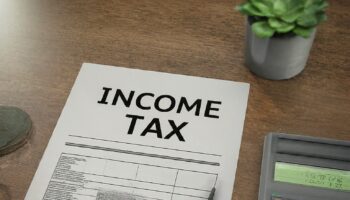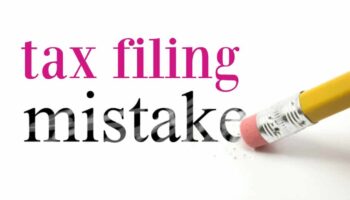On October 3, 2016, the Government announced an administrative change to Canada Revenue Agency’s reporting requirements for the sale of a principal residence. A principal residence is considered your primary home of residence, a home that is ordinarily inhabited by the taxpayer or by his or her spouse or common-law partner, former spouse or common-law partner, or child.
What has NOT changed
The tax laws that allow Canadians to claim the principal residence exemption on the sale or deemed disposition of their principal residence has not changed. When you sell your principal residence or when you are considered to have sold it, usually you do not have to report the sale on your income tax and benefit return and you do not have to pay tax on any gain from the sale. This is the case if you are eligible for the full income tax exemption (principal residence exemption) because the property was your principal residence for every year you owned it.
What has changed
Starting with the 2016 tax year, generally due by late April 2017, you will be required to report basic information (date of acquisition, proceeds of disposition and description of the property) on your income tax and benefit return when you sell your principal residence to claim the full principal residence exemption. You will complete Schedule 3 and file it with your T1 Income Tax and Benefit Return for the year you sell the property.
Schedule 3 has now been updated to include a section on the sale of principal residence. If the property was your principal residence for every year that you owned it, you will make the principal residence designation in your Schedule 3. In this case, the year of acquisition, proceeds of disposition and the description of the property are the information that will have to be reported. You will also be required to check off one of the three boxes on the Principal Residence Designation section of Schedule 3. Completion of Form T2091 (or Form T1255) will still be required for the designation in the case the property was not your principal residence for all of the years that you owned it. i.e. if you owned a second home like a cottage, you will have to complete an additional form.
Reason for the change
CRA noted that the change is made to improve compliance and administration of the tax system. For those of you that have been following the housing industry in Canada, there has been significant abuse of the tax system as it relates to sale of residential properties. The rising prices of residential properties have led to significant transactions in the real estate industry and lack of transparency in reporting of capital gains. CRA recently put a lot of resources into investigating these transactions and uncovered numerous instances of unreported income so they are hoping a change in the reporting will help drive compliance.
What if you don’t report?
You may end up paying taxes on the sale of your principal residence if you don’t report. For the sale of a principal residence in 2016 or later tax years, CRA will only allow the principal residence exemption if you report the sale and designation of principal residence in your income tax return. If you forget to make a designation of the principal residence in the year of sale, it is very important to ask the CRA to amend your income tax return for that year. Under proposed changes, the CRA will be able to accept a late designation in certain circumstances, but a penalty may apply. The penalty is the lesser of the following amounts:
- $8,000; or
- $100 for each complete month from the original due date to the date your request was made in a form satisfactory to the CRA.
What if you rent out part of your home?
When you rent out a part of your home or cottage, you are considered to have changed the use of that part of the home from personal-use to rental property. Depending on the circumstances, when you eventually sell your home, or have a deemed disposition because you stop renting part of it, you may have to report a capital gain on the portion of your home that you rented out. You may do this by splitting the selling price and the adjusted cost base between the part you used for your principal residence and the part you used for rental based on square metres or the number of rooms, as long as the split is reasonable.
The CRA Rental Income Tax Guide, T4036, and S1-F3-C2: Principal Residence state that if all of the following conditions are met, you will not be considered to have a change in use:
- the part of the home used for rental purposes is small in relation to the size of the whole property;
- you do not make any structural changes to the property to make it more suitable for rental purposes; and
- you do not claim any capital cost allowance on the part you are using for rental purposes.
If all of the above conditions are met, you will not have to report a capital gain when the property is sold or the rental is stopped. Otherwise, you will have to report a capital gain based on the portion of the house that was rented. If you rent out a part of your home, CRA’s position is that you may only write off losses against other income if you have a “reasonable expectation of profit” from the property rental.
So what?
If you did not change your primary residence in 2016, you don’t have to do anything. However, if you:
- Sold your primary residence in 2016;
- Moved from your primary residence and converted it to a rental; or
- Moved from a rental property owned by you and converted it to a primary residence.
Then, you will have to carefully review your 2016 tax return prior to filing. Have a chat with your accountant or tax preparer to ensure that Schedule 3 is appropriately completed. If you don’t, you may end up paying taxes on the sale of your home.
We are here to help if you have questions or need help filing your tax returns accurately. You can contact one of the partners at Green, Meikle & Smith:
Ken Green at 416-706-3491 or via email at ken.green@greenmeiklesmith.com







Do you mind if I quote a couple of your articles as long as I provide credit and sources back to your weblog? My blog is in the exact same area of interest as yours and my users would definitely benefit from a lot of the information you provide here. Please let me know if this alright with you. Appreciate it!|
educational websites for students http://educationhint.eu/
Not a problem. You can go ahead and share.